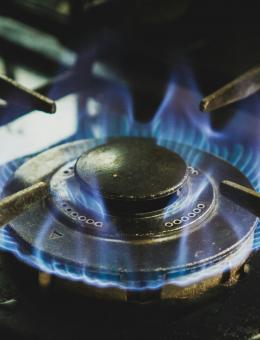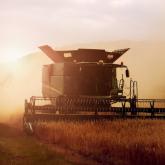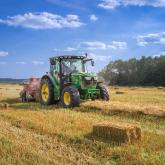
AS AUTUMN ARRIVES, MAKE SURE YOUR PROPERTY IS READY FOR WINTER
Published 12 September 2025
As the mercury starts to dip, this is the time of year when we think about that moment when we will once again have to fire up the central heating, writes Daisy Egmore.
For all sorts of reasons, landlords should not be pushing thoughts of central heating to the back of their minds as our boilers awake from their summer slumbers - and the most important of those is gas safety.
It is no accident that Gas Safety Week takes place every September (it is this week), to remind ourselves of the need to ensure we protect everybody from the invisible, odourless yet deadly menace that is carbon monoxide.
Landlords have a particular responsibility to their tenants when it comes to gas safety. First of all they must ensure that all gas equipment in the property is installed and maintained by a Gas Safe registered engineer. They must also arrange for an annual gas safety check on each appliance and each flue, also by a Gas Safe registered engineer.
Records must be kept of these installations and safety checks, and they must be provided to tenants no later than 28 days after the check, or at the start of each tenancy. Failure to do this means, apart from anything else, that landlords will not be able to issue a Section 21 eviction notice.
In addition to this, landlords must ensure a functioning carbon monoxide alarm is provided in any room used as living accommodation which contains a ‘fixed combustion appliance’. They are also legally obliged to ensure that smoke alarms and carbon monoxide alarms are repaired or replaced should the alarms be found to be faulty once they are advised by the tenant.
Failure to comply with gas safety measures carries significant consequences for landlords, with substantial potential fines. Added to which, no landlord wants to put the safety of their tenants in danger.
There is another seasonal safety task which needs to be carried out, and that is sweeping chimneys which are used for open fires or log-burning stoves. This must be done by the landlord when they first rent out a property, following which it is the tenant’s responsibility to ensure it happens at least once a year.
However, given that a chimney fire can do a lot of damage to the property (and without a current certificate of sweeping, the landlord’s buildings insurance will likely be invalidated), it’s a good idea for landlords to be proactive in this regard, either arranging the chimney to be swept on the tenant’s behalf, or at the very least reminding the tenant of their responsibility and insisting on seeing the certificate once the job is done.
Finally, don’t forget to get those gutters cleared as well – autumnal downpours can result in damp problems if they are blocked with dead leaves and other detritus.
Share this story
Arnolds Keys Blog

SUCCESSION: HOW THE FAMILY FARM TAX IS CONCENTRATING MINDS
12 September 2025
The announcement that this year’s Budget will take place on 26th November underlines that it is nearly 12 months since Rachel Reeves dropped the inheritance tax bombshell in her last... Read more >

GIVE US SOME CLARITY, PLEASE, MRS REEVES
5 September 2025
With the announcement this week that the Budget won’t take place until 26th November, there is plenty of opportunity for the waves of speculation about Mrs Reeves’ plans when it... Read more >

THE IMPORTANCE OF A FARM POLICY TO TACKLE BLACKGRASS
23 August 2025
In the very tight financial position which most farms find themselves, anything which affects yields even in a small way is something that needs to be tackled – and the... Read more >

LIVING ABOVE THE SHOP: THE APPEAL OF MIXED USE PROPERTY INVESTMENTS
20 August 2025
Not so long ago, ‘living above the shop’ was a common situation for many business owners, writes Harry Downing. Read more >
